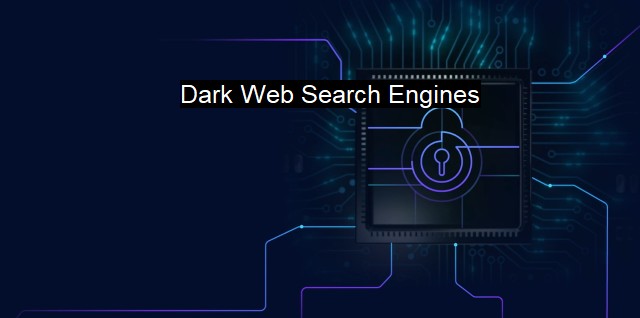What are Dark Web Search Engines?
Combatting Cyber Threats: Emerging Role of Dark Web Search Engines as Cybersecurity Solutions
The Dark Web refers to the more secretive part of the Internet that typically isn’t accessible to everyday Internet users but can be accessed using specific tools. The Dark Web is commonly utilized by entities wishing to remain anonymous. Dark Web Search Engines are tools uniquely designed to index and search through content available on the Dark Web. They serve a similar purpose as regular search engines such as Google, Bing, or Yahoo but differ significantly in their operation, the content they index, and purpose they serve. In the context of cybersecurity and antivirus software, understanding Dark Web Search Engines and their implication is paramount.Dark Web Search Engines provide a window within the shadowy side of the Web, enabling access to obscured websites full of hidden content. Primarily accessed through tools like TOR (The Onion Router) and I2P (Invisible Internet Project), these sites contain concealed goods, services, and communities, most with serious privacy considerations or participating in illegal activities. Some sites sell private data, illegal goods, digital credentials, malwares, and far more troublesome content.
For cybersecurity professionals, understanding the Dark Web can be crucial, particularly in mitigating potential threats and risks. These professionals use Dark Web Search Engines as a part of their web intelligence operations to preemptively identify potential threats, counter malicious actions, secure private and organizational data, to understand phishing campaigns, and prevent overall exploitation of encrypted networks. They track digital footprints or suspicious activities that could be lead sources of DDoS attacks, unauthorized data access, and more cybercrime related operations.
In the antivirus context, malicious software’s promotion, sale, or free distribution occurs extensively on the Dark Web. Malware, ransomware, trojans, viruses, crypto-mining scripts, and exploit functions are readily available for use by individuals with malicious intent. Cyber experts frequently scan and proactively counteract these threats by understanding their structures, dissecting their codes, recognizing their point of origin, and learning to track their mutations.
Closer home, private and organizational data breaches have become increasingly commonplace. While illegal, the sale of this private data, like bank details, email addresses, social security numbers, intellectual property, and proprietary business information, occurs extensively on the Dark Web. Corporations have now taken cybersecurity seriously, investing in Dark Web monitoring to ensure their data does not feature in these secretive marketplaces.
Several Dark Web search engines, such as Torch, notEvil, SearX, Ahmia, and others, offer a variety of services, from basic search functionalities to more complex operations like tracking Bitcoin transactions. During an in-depth examination, these search engines often display databases of stolen data, compromised accounts, or available exploits, facilitating the vigilance activities of cybersecurity teams.
There is a dire necessity for caution while navigating the Dark Web. Its alluring anonymity often masks its ability to compromise a user's cybersecurity integrity. Users are confronted with relentless phishing attempts, immensely aggressive malware strains, ransomware attacks, and various scams. Antivirus solutions form a crucial defense, installing and regularly updating a trustworthy antivirus software can protect against many typically encountered threats in the Dark Web. using tools to encrypt data and hide IP information can offer an extra layer of security.
The Dark Web and its search engines harbor a vast ocean of threats to both individual users and businesses. In the hands of cybersecurity professionals, these search engines can serve as invaluable tools for preventive and predictive cyber threat management. When supplemented with robust antivirus software and safety practices, a comprehensive security posture can be maintained against the manifold threats lurking in the Dark Web.

Dark Web Search Engines FAQs
What are dark web search engines?
Dark web search engines are online tools that allow users to search for information and content on the dark web, which is a section of the internet that is not indexed by traditional search engines. These search engines operate on the Tor network and enable users to find hidden websites, forums, and marketplaces that are not accessible via the regular internet.Are dark web search engines legal?
While accessing the dark web itself is not illegal in most countries, it is important to note that using dark web search engines to find illegal or harmful content can be illegal and may result in serious consequences. It is always advised to exercise caution and use these search engines responsibly.What are the risks of using dark web search engines?
Using dark web search engines can expose users to risks such as malware, viruses, and phishing scams. The websites and content found on the dark web are not regulated, and users can never be sure of the true intentions of the website or the seller. Additionally, accessing certain types of illegal content can have serious legal and personal consequences.How can I protect myself while using dark web search engines?
To protect yourself while using dark web search engines, it is crucial to use a reputable VPN service, which masks your online activity and protects your identity. Additionally, it is recommended to use a reliable antivirus software, and to avoid clicking on suspicious links or downloading attachments from unknown sources. It is also important to research the websites and sellers carefully before engaging with them.| | A | | | B | | | C | | | D | | | E | | | F | | | G | | | H | | | I | | | J | | | K | | | L | | | M | |
| | N | | | O | | | P | | | Q | | | R | | | S | | | T | | | U | | | V | | | W | | | X | | | Y | | | Z | |
| | 1 | | | 2 | | | 3 | | | 4 | | | 7 | | | 8 | | |||||||